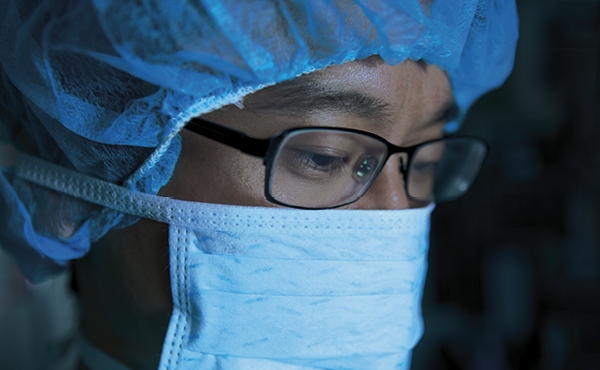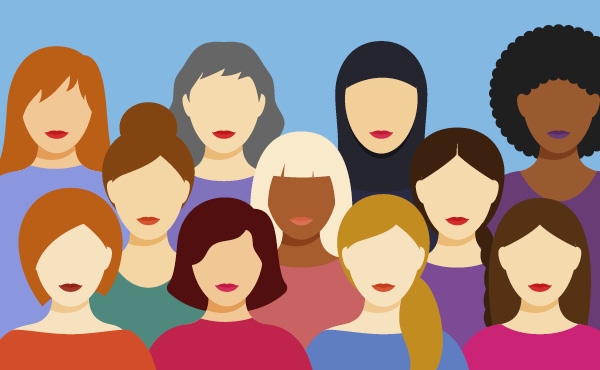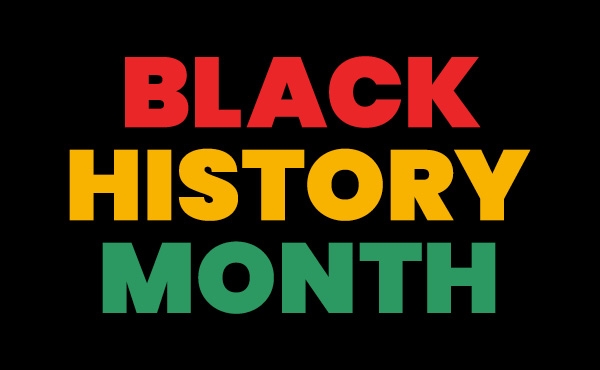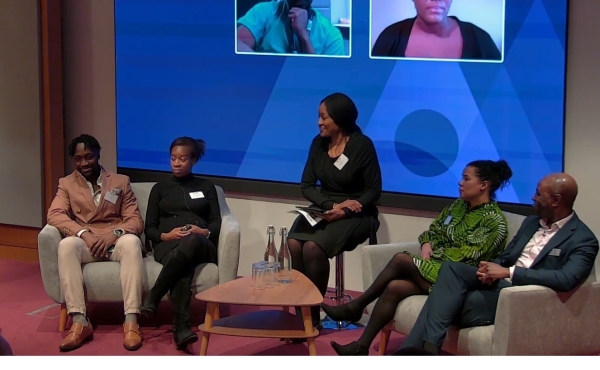Equity, Diversity and Inclusion
We stand united in our commitment to fostering an inclusive and diverse culture within our organisations and within anaesthesia, critical care, pain medicine and perioperative care.
Our joint Equity, Diversity and Inclusion statement
In anaesthesia, diversity is more than a principle - it is a necessity for excellence. Recognising the need for a more inclusive and diverse culture, the Association of Anaesthetists, the Royal College of Anaesthetists, the Faculty of Intensive Care Medicine, the Faculty of Pain Medicine and the Centre for Perioperative Care have united to set a new standard - one that ensures everyone feels valued, supported and empowered.
We stand united in our commitment to fostering an inclusive and diverse culture within our organisations and within anaesthesia, critical care, pain medicine and perioperative care. We recognise that our strength lies in our members, and we are dedicated to creating environments where everyone feels safe to be themselves, valued, and empowered to thrive, regardless of their identity or background.
Our commitment
We are committed to addressing the systemic inequalities and biases that exist within healthcare and healthcare organisations. We are determined to work proactively to challenge and dismantle these biases. We pledge to:
- Champion equity, diversity, and inclusion (EDI) as core values. We will embed EDI principles into all aspects of our organisations, from governance and leadership to education, training, policies and research.
- Promote a culture of respect and belonging. We will actively foster environments where discrimination, harassment, and bullying are not tolerated, where all individuals across our multidisciplinary teams are treated with dignity and respect.
- Address systemic inequalities. We will work collaboratively to identify and address the root causes of gaps in access, opportunity, and outcomes for underrepresented groups within our specialties.
- Enhance representation and participation. We will actively seek to increase the representation of diverse voices and perspectives at all levels of our organisations, including leadership positions, boards, committees, and working groups.
- Provide inclusive education and training. We will ensure that our educational programmes and training materials reflect the diversity of our patient and specialty population and promote culturally competent practice.
- Support and empower underrepresented groups. We will provide mentorship, sponsorship, and other support mechanisms to empower individuals from underrepresented groups to achieve their full potential.
- Promote data collection and transparency. We will collect and analyse data on diversity and inclusion to monitor progress and identify areas for improvement. We will be transparent in our reporting, and accountable for our actions.
- Collaborate and share best practices. We will work together to share best practices and resources, and to learn from each other's experiences in advancing EDI.
- Actively listen and respond. We will create accessible channels for feedback and actively listen to the experiences and concerns of our members.
- Zero tolerance. We have a zero-tolerance policy towards any form of discrimination, racism, harassment, or bullying.
Our actions
To demonstrate our commitment, we will:
- Develop and implement comprehensive EDI strategies and action plans.
- Establish clear mechanisms within our organisations for reporting and addressing incidents of discrimination and harassment.
- Provide regular EDI training and education for our committees, boards and staff.
- Support colleagues to call-out and escalate discriminatory and inappropriate behaviour.
- Review and revise our policies and procedures to ensure they are equitable and inclusive.
- Regularly share and learn from good practice.
- Encourage the establishment of EDI forums and networks.
- Partner with other organisations and stakeholders to advance EDI in healthcare and healthcare organisations.
- Regularly review this statement and update as needed.
Our vision
We envision a future where the specialties of anaesthesia, critical care, pain medicine and perioperative care are truly inclusive and equitable, where everyone feels valued, respected, and empowered to contribute their unique talents and perspectives. By working together, we can create a culture of excellence that benefits, our patients, our members and the wider healthcare system.
Our EDI work for members and the specialty
Based on evidence, the Board of Trustees and Council will review and deliver recommendations that improve this diversity and inclusion in the specialty. The group will also investigate the issue of representation within and across leadership positions in anaesthesia.
The College therefore encourages all members when asked, to provide details about race, ethnicity, and diversity. We will only collect data that helps us ensure our ED&I research and activities are delivered in a fair way that balances the needs of diverse groups.
All data will be stored and processed safely and confidentially in accordance with our data protection policy.
Medics Network (WPMN) and the Royal College of Anaesthetists which aims to increase diversity within Anaesthesia.
GasReach new is a mentoring scheme which pairs current trainees enthusiastic about widening participation with medical students and junior doctors from under-represented backgrounds. Through regular virtual sessions and discussions over a one-year period, the mentor-mentee groups will explore a variety of topics around careers in anaesthesia and the application process.
The application window for mentees and mentors is now closed. Look out for further information in 2025.
The Royal College of Anaesthetists is committed to supporting the work being undertaken by the Working Party on Sexual Misconduct in Surgery (WPSMS) and we are working to eradicate this behaviour in surgery settings, our specialty and in healthcare. Read about what we are doing to support this work.
Read about our work to eradicate differential attainment in examinations.
General Medical Council: support for victims and survivors of sexual misconduct
The GMC has published resources for patients who have been subject to sexual misconduct by a doctor. The guidance provides clear examples of the types of sexual misconduct that employers should be aware of, and the steps they should take to support staff.
General Medical Council: racism in the workplace
Everyone has the right to come to work without fear of racism. We recognise the unacceptably high levels of racism directed toward staff in healthcare settings and support a zero-tolerance approach to racism.
International Women’s Day: it’s not who we are, but what we bring that should make the difference
Dr Fiona Donald (then RCoA Vice-President) wrote a blog for the British Medical Journal.
Our EDI work for College employees
The College has recently been awarded the Bronze level of the Inclusive Employers Standard. Find out about this evidence-based workplace accreditation tool.
An active forum for black staff at the College has been developed and meets regularly. The aims of this forum include:
- to create and have a safe space to speak about how staff feel about the Black Lives Matter Campaign, particularly in relation to themselves and the workplace
- to share and vocalise concerns, worries and issues on race and equality to senior management and committees in the College
- to provide a mechanism for senior management and the wider College to communicate with Black members of staff to deliver the aspirations in the College’s statement on Black Lives Matter
- to develop actions and plans to deliver changes that foster a more diverse and inclusive culture within the RCoA, driving change that breaks down institutional racism and creates an open, safe space for all.
Find out more
Racism, discrimination and diversity within healthcare
Neurodiversity in anaesthesia
International Women's Day
Black History Month: actions not words
Improving the experience of anaesthesia for patients
To Grow and Thrive Podcast
Black anaesthetists session at Anaesthetic Updates








